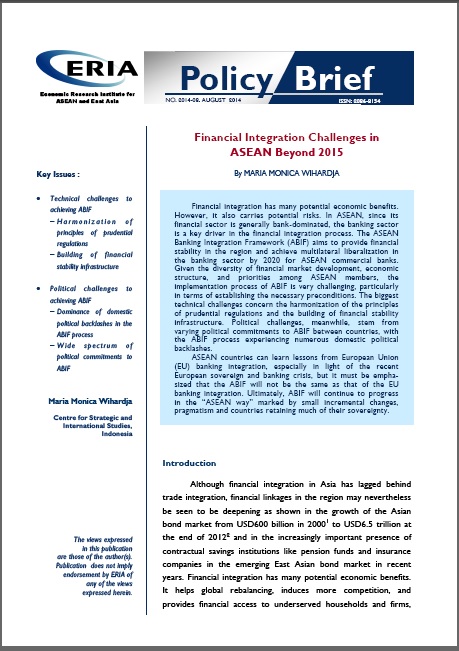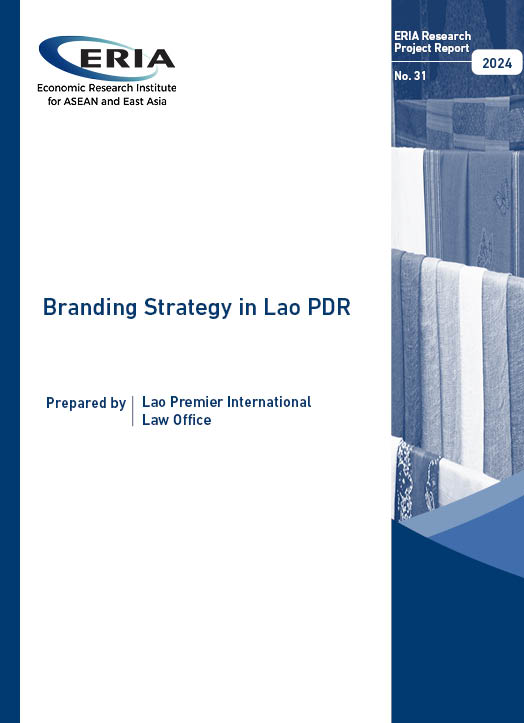Financial Integration Challenges in ASEAN Beyond 2015

Print Article:
Abstract
Financial integration has many potential economic benefits. However, it also carries potential risks. In ASEAN, since its financial sector is generally bank-dominated, the banking sector is a key driver in the financial integration process. The ASEAN Banking Integration Framework (ABIF) aims to provide financial stability in the region and achieve multilateral liberalization in the banking sector by 2020 for ASEAN commercial banks. Given the diversity of financial market development, economic structure, and priorities among ASEAN members, the implementation process of ABIF is very challenging, particularly in terms of establishing the necessary preconditions. The biggest technical challenges concern the harmonization of the principles of prudential regulations and the building of financial stability infrastructure. Political challenges, meanwhile, stem from varying political commitments to ABIF between countries, with the ABIF process experiencing numerous domestic political backlashes.
ASEAN countries can learn lessons from European Union (EU) banking integration, especially in light of the recent European sovereign and banking crisis, but it must be emphasized that the ABIF will not be the same as that of the EU banking integration. Ultimately, ABIF will continue to progress in the "ASEAN way" marked by small incremental changes, pragmatism and countries retaining much of their sovereignty.




